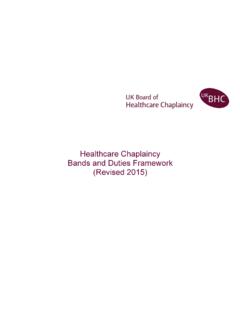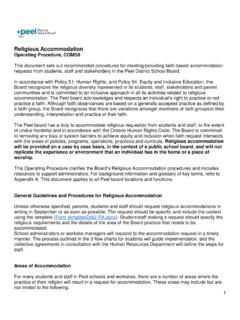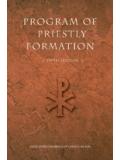Transcription of Spiritual and Religious Care Capabilities and Competences ...
1 Spiritual CareSpiritual and Religious care Capabilities and Competences for Healthcare ChaplainsSpiritual and Religious care Capabilities and Competences for Healthcare Chaplains 1 Introduction 3 Spiritual care and Religious care 3A Health Service Responsibility 4 Chaplains 4 Recent Documents 4 The Need for a Capabilities and Competences Framework for Healthcare Chaplains 4 NHS education for Scotland 5 Skills for Health 5A Capabilities and Competences Framework 5 The Spiritual and Religious care Capabilities and Competences for Healthcare Chaplains 6 Developing the Healthcare Chaplains Capabilities and Competences Framework 7 Essential Capabilities for Healthcare Chaplaincy 8 Structure of the Healthcare Chaplaincy Framework 9 References to Chaplaincy Standards 10 Links to Knowledge and Skills Framework (KSF) 10 How can the Framework be used?
2 10 Defi nition of Terms 11 Bibliography 27 ContentsScottish Association of Chaplains in Healthcare2 Spiritual and Religious care Capabilities and Competences for Healthcare ChaplainsCompetency and Capability Project GroupChris Levison: Healthcare Chaplaincy Training and Development Offi cer and Spiritual care Advisor, NHS education for in Healthcare ChaplaincyJanet Foggie: Mental Healthcare Chaplain, Macritchie: Lead Chaplain, NHS Highland, Mitchell: Parish Minister and Lecturer Practitioner, Tighnabruaich. Consultation CommitteeKaren Adams: Educational Projects Manager, NHS education for Borowski: Director, Scottish Council of Jewish Chima: Equality and Diversity Manager, NHS Devenny: Head of Spiritual care , NHS Foggie: Mental Healthcare Chaplain, Fraser: Chair of Chaplaincy Academic Accreditation Board and Lead Chaplain, Addenbrooke s NHS Trust.
3 Tom Gordon: President of the Association of Hospice and Palliative care Chaplains and Chaplain, Marie Curie Hospice, Hodge: Health care Chaplaincy Free Churches Group, Churches Together in England. Cameron Langlands: Head of Chaplaincy Services Mental Health Partnerships, NHS Greater Glasgow and Clyde. Chris Levison: Healthcare Chaplaincy Training and Development Offi cer and Spiritual care Advisor, NHS education for Lloyd-Richards: Lead Chaplain, Cardiff and Vale NHS Trust. Iain Macritchie: Lead Chaplain, NHS Highland, Mitchell: Parish Minister and Lecturer Practitioner, Sneddon: Head of School, Department of Nursing and Healthcare, University of Swinton: Professor in Practical Theology and Pastoral care , University of Wallace: Nurse Director, NHS Forth Walton: Senior Lecturer in Practical Theology, University of ByCAAB Chaplaincy Academic and Accreditation BoardAHPCC Association of Hospice and Palliative care ChaplainsCHCC College of Health care ChaplainsSACH Scottish Association of Chaplains in HealthcareSpiritual and Religious care Capabilities and Competences for Healthcare Chaplains 3 IntroductionChaplaincy and Spiritual care in the National Health Service have developed markedly over the past few years.
4 The Health Department Letter Spiritual care in NHSS cotland (HDL (2002) 76) for the fi rst time made Spiritual care an integral part of healthcare. Up until then, Spiritual care was generally regarded as being identical to Religious care and health boards had been advised that they should have chaplains to undertake this work. HDL (2002) 76 made several very specifi c statements with regard to future policy and underlined recent statements from the World Health Organisation to the effect that full person care could no longer ignore the elements of care , compassion, beliefs and values which come under the umbrella of Spiritual care . It had been an incomplete view of our humanity which concentrated on the physical, psychological and social but made no mention of that search for meaning and value which makes up the Spiritual element of human living.
5 Spiritual care and Religious CareThe HDL (2002) 76 document differentiated between Spiritual care and Religious care : Spiritual care is usually given in a one to one relationship, is completely person centred and makes no assumptions about personal conviction or life orientation; Religious care is given in the context of shared Religious beliefs, values, liturgies and lifestyle of a faith care is often used as the overall term and is relevant for all. For some their Spiritual needs are met by Religious care , the visits, prayers, worship, rites and sacraments often provided by a faith leader, or representative of the faith community or belief group. Spiritual care can be provided by all healthcare staff, by carers, families and other patients. When a person is treated with respect, when they are listened to in a meaningful way, when they are seen and treated as a whole person within the context of their life, values and beliefs, then they are receiving Spiritual care .
6 Chaplains are the specialist Spiritual care providers. For them, Spiritual care is the reason for their employment and they are expected to be knowledgeable, capable and competent in the areas of Spiritual and Religious care . They are expected to take their place as members of the multi-professional healthcare team and to fulfi l a meaningful role within the healthcare community. 4 Spiritual and Religious care Capabilities and Competences for Healthcare ChaplainsA Health Service ResponsibilitySpiritual care is a responsibility of the health service and should be undertaken in partnership with the faith communities and belief groups within the wider community (HDL (2002) 76).To that extent each health board has written and approved a Spiritual care Policy describing the direction, application and organisation of Spiritual care within and as part of the service it provides.
7 Spiritual care Committees and Departments of Spiritual and Religious care are but two of the developments since then. Since 1 January 2007 all whole time chaplains in Scotland have been direct employees of the health service. Elsewhere in the UK this is also common practice. ChaplainsChaplains have professional associations to which a large number belong. The main three are the Scottish Association of Chaplains in Healthcare (SACH), the College of Health care Chaplains (CHCC) and the Association of Hospice and Palliative care Chaplains (AHPCC). Together these associations have developed a Code of (Ethical) Practice and considerable work has been done on chaplaincy standards and the body of knowledge that chaplains need to know (AHPCC, CHCC, SACH 2005). Work is under way to produce professional qualifi cations for chaplains.
8 It is the aspiration of all the associations that healthcare chaplaincy becomes a healthcare profession. To achieve the status of a registered healthcare profession healthcare chaplaincy requires to become a self-regulating profession and a number of groups are currently working on the components required for self-regulation. The Chaplaincy Academic and Accreditation Board (CAAB), made up from the professional associations in the United Kingdom, has a signifi cant role. The work leads towards a more professional approach to chaplaincy with regard to education , entry to the profession, relationship to faith and belief communities and levels of responsibility/seniority. Chaplains now take their place within the NHS Knowledge and Skills Framework (KSF) and on the Agenda for Change (AFC) bandings (Department of Health 2004b).
9 Recent DocumentsIn Scotland a Scoping Study on Spiritual care and Chaplaincy was undertaken by the Chaplaincy Training and Development Unit in conjunction with Quality Improvement Scotland (NHS QIS, 2005). A broadly representative group developed Standards for NHSS cotland Chaplaincy Services which has been approved by the professional associations (AHPCC, CHCC, SACH, 2007). Another group is looking at the possibility of an e-portfolio for recording continuing professional development following on from original work undertaken by June 2005 CAAB approached Skills for Health with the aim of developing national occupational standards. Skills for Health agreed to collaborate with CAAB as they provided the professional expertise for such a project. The Caring for the Spirit project in England, created from a strategy document by the South Yorkshire Workforce Development Confederation for chaplaincy within the Spiritual healthcare workforce, sought to commission Skills for Health to develop national occupational standards for healthcare chaplaincy (SYWCD, 2003).
10 However, this did not go forward. The Need for a Capabilities and CompetencesFramework for Healthcare ChaplainsFollowing the recommendation of the NHS QIS Scoping Study (NHS QIS, 2005) and the completion of the Standards for Chaplaincy Services in NHSS cotland (AHPCC, CHCC, SACH, 2007), the logical progression is to produce a capability and competence framework for individuals working as healthcare chaplains. This framework would help to inform Spiritual and Religious care Capabilities and Competences for Healthcare Chaplains 5and develop education and training, the planning of work-based learning and the personal development of healthcare chaplains. The document is referenced to the Chaplaincy Standards and linked to the Knowledge and Skills Framework. It is recognised that upon completion of this framework, and derivative from and related to this work, there is the need for another framework for all healthcare staff as all staff have the potential to provide Spiritual education for ScotlandThe purpose of NHS education for Scotland (NES) is to help provide better patient care by designing, commissioning, quality-assuring and, where appropriate, providing education , training and lifelong learning for the NHSS cotland workforce.







